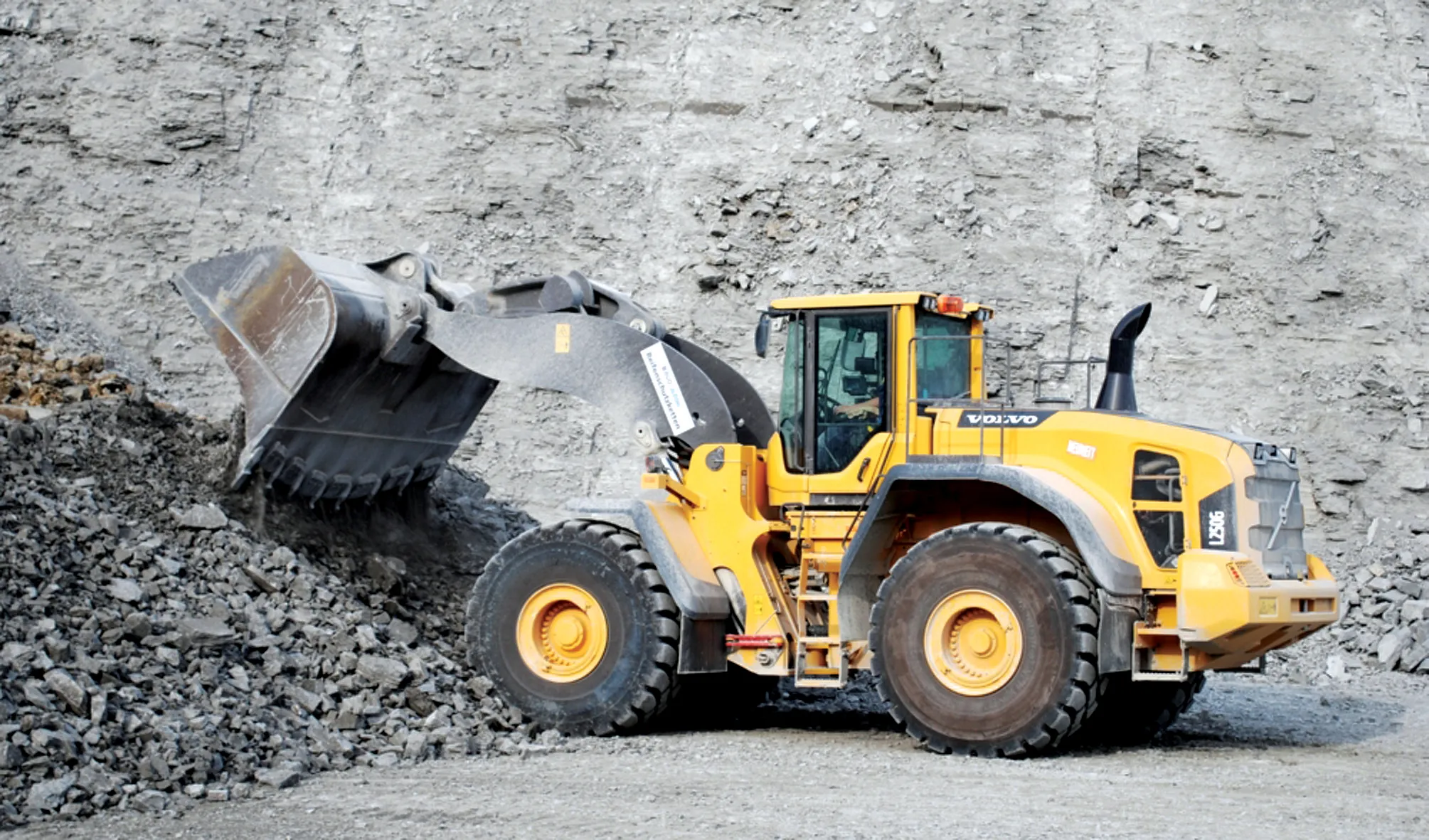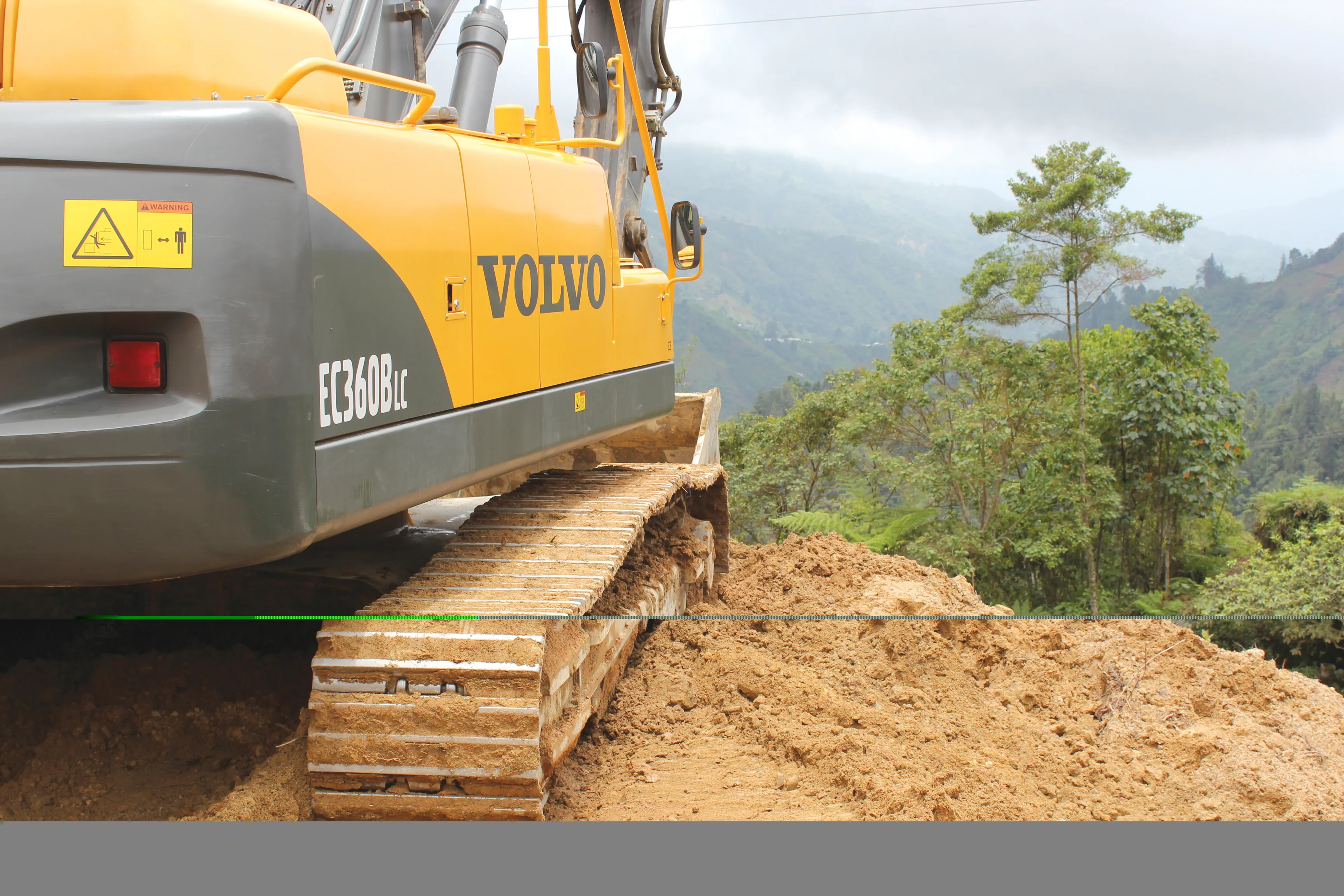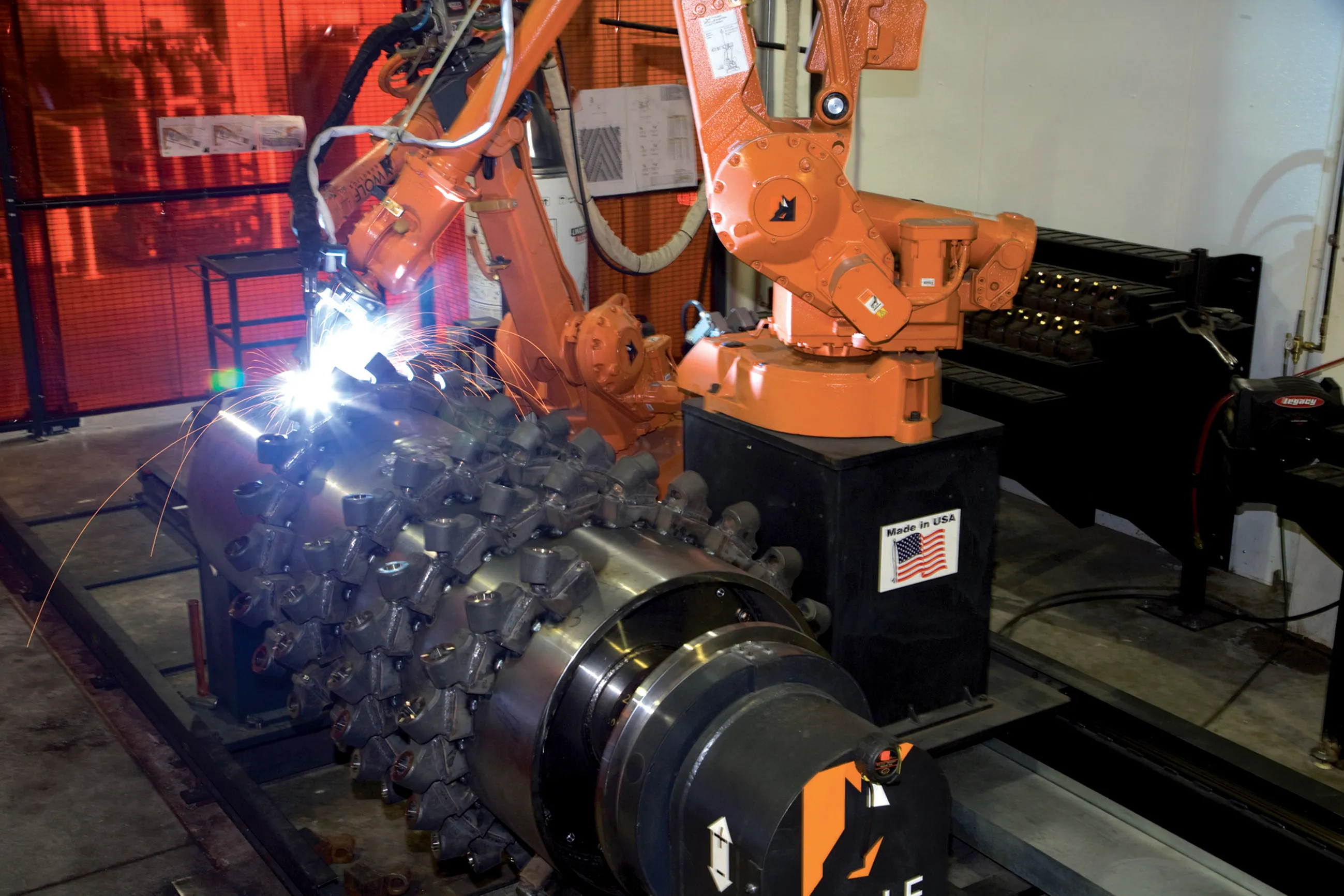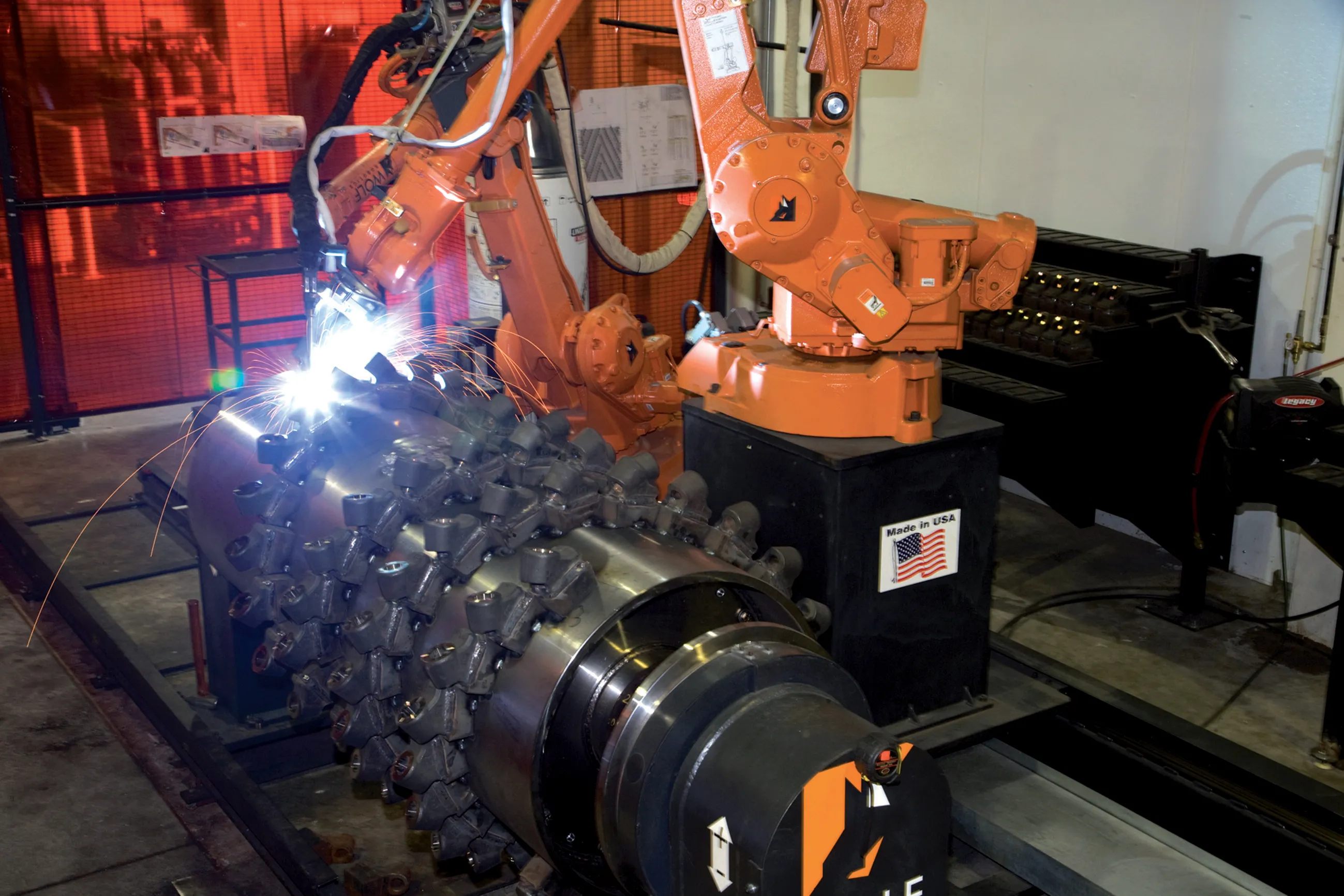Volvo’s new L250G wheel loader is being tested for the first time by a German family-run quarrying, logistics and concrete plant company with growing customer demands. Löderburger Baustoff + Transport (LBT), part of the larger Ferdinand Wesling Group, is using the machine at its two million tonnes a year yield limestone quarry in Stassfurt.
April 13, 2012
Read time: 2 mins

Volvo’s new L250G wheel loader is being tested for the first time by a German family-run quarrying, logistics and concrete plant company with growing customer demands.
Löderburger Baustoff + Transport (LBT), part of the larger3903 Ferdinand Wesling Group, is using the machine at its two million tonnes a year yield limestone quarry in Stassfurt. The limestone is used for shaft furnace bricks for a local sodium carbonate producer, as well as chippings for concrete and asphalt mixes for road construction, building blocks and other road construction materials.
The 50-hectare Stassfurt quarry, now 55 meters deep, is so busy feeding the sodium carbonate factory that LBT employees work seven days a week, 365 days a year, with Volvo loaders putting in ten to 16-hour days.
The Wesling Group is a major Volvo Construction Equipment (359 Volvo CE) customer, running a fleet of 35 wheel loaders across Germany – 10 of which are at work in the Stassfurt quarry.
LBT says the L250G has revolutionised efficiency for the company, effortlessly tackling a variety of tasks. Rather than making four cycle loads, LBT claims the L250G can finish the job in only three - saving time, money and fuel.
Löderburger Baustoff + Transport (LBT), part of the larger
The 50-hectare Stassfurt quarry, now 55 meters deep, is so busy feeding the sodium carbonate factory that LBT employees work seven days a week, 365 days a year, with Volvo loaders putting in ten to 16-hour days.
The Wesling Group is a major Volvo Construction Equipment (
LBT says the L250G has revolutionised efficiency for the company, effortlessly tackling a variety of tasks. Rather than making four cycle loads, LBT claims the L250G can finish the job in only three - saving time, money and fuel.









